I am woman. Hear me give.
It’s International Women’s Day on 8 March, so let’s take a moment to celebrate just a few of the women leading the way in charitable giving.
We hear a great deal about philanthropy from men around the world. News feeds are plentiful with praise on Warren Buffet, Mark Zuckerberg, and closer to home we hear of prominent individuals like Ian Darling, David Gonski and Daniel Petre.
Their generosity is admirable and it helps. Every bit does, and these people aren’t just giving a little. They’re giving a lot. But it’s International Women’s Day on 8 March, so it’s time to celebrate the women leading charge on the giving stage.
Despite income discrepancies, the World Giving Index for 2016 found very little difference in average donations made by men and women. In fact, in Australia women are reported to give a higher portion of their income and do so more often.
These are some women who are indeed #BeingBoldForChange. And today, we say thank you! In no particular order…
JK Rowling
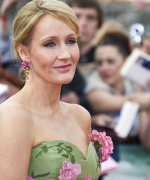 One of the most famous ‘rags to riches’ stories, JK Rowling went from the status of struggling single Mum to billionaire children’s author when a boy wizard named Harry magically tickled the fancy of readers around the world. However, Ms Rowling is no longer a billionaire because in 2011 she donated 16 per cent of her fortune to charity – a whopping $US160 million.
One of the most famous ‘rags to riches’ stories, JK Rowling went from the status of struggling single Mum to billionaire children’s author when a boy wizard named Harry magically tickled the fancy of readers around the world. However, Ms Rowling is no longer a billionaire because in 2011 she donated 16 per cent of her fortune to charity – a whopping $US160 million.
The writer’s historical experiences of previously relied on welfare and struggled to make ends meet, are those that make people more likely to give back. In her speech at the Harvard University commencement ceremony in 2008, Rowling said that poverty “is not an ennobling experience… It means a thousand humiliations and hardship.”
She now directs funds through the Volant Charitable Trust, and supports her own charity the Lumos, which works to create a systemic change from outdated child institutions to community based services that provide children with access to health, education and social care tailored to their individual needs.
Melinda Gates
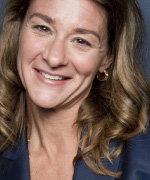 The name ‘Gates’ is synonymous with computer technology that changed the world, focused business and redefined philanthropy strategy. Melinda Gates was ranked number four on the World’s Most Powerful Women list, curated by Forbes, and she is the co-Founder of the Bill & Melinda Gates Foundation. This is an organisation that has received the Award for Greatest Public Service Benefiting the Disadvantaged, an award given out annually by Jefferson Awards, saw its founders named by Time magazine as Persons of the Year in 2005.
The name ‘Gates’ is synonymous with computer technology that changed the world, focused business and redefined philanthropy strategy. Melinda Gates was ranked number four on the World’s Most Powerful Women list, curated by Forbes, and she is the co-Founder of the Bill & Melinda Gates Foundation. This is an organisation that has received the Award for Greatest Public Service Benefiting the Disadvantaged, an award given out annually by Jefferson Awards, saw its founders named by Time magazine as Persons of the Year in 2005.
With a talent for finding big solutions to big problems, the website of the Bill & Melinda Gates Foundation reads with elegantly powerful focus that ‘we are impatient optimists working to reduce inequity’. In their letter to Warren Buffet earlier this year a key number cited was 122 million—the number of children’s lives saved since 1990. However, the number they are shooting for is zero: ‘Zero malaria. Zero TB. Zero HIV. Zero malnutrition. Zero preventable deaths. Zero difference between the health of a poor kid and every other kid’. The Foundation has also provided $36.7 billion in grants alone.
Melinda Gates has worked alongside her husband to expand their foundation’s vision, investing in new models of philanthropy and focused much of her attention on investments in women and girls around the world. The foundation is a partner of the Family Planning 2020 initiative, a global partnership with the goal of providing 120 million more women access to contraceptives by 2020.
Associate Professor Wendy Scaife
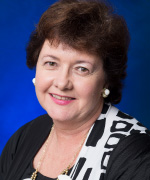 Associate Professor Wendy Scaife is responsible for an impressive proportion of evidence-based discussion on philanthropy in Australia. Scaife‘s research projects at QUT’s Australian Centre for Philanthropy and Nonprofit Studies have informed government and industry decisions around social investment, philanthropy, the not-for-profit sector and giving. This includes leading the largest ever study into Australia’s charitable giving on behalf of the Federal Government.
Associate Professor Wendy Scaife is responsible for an impressive proportion of evidence-based discussion on philanthropy in Australia. Scaife‘s research projects at QUT’s Australian Centre for Philanthropy and Nonprofit Studies have informed government and industry decisions around social investment, philanthropy, the not-for-profit sector and giving. This includes leading the largest ever study into Australia’s charitable giving on behalf of the Federal Government.
Scaife said that through this her team’s findings would, “help the Not for Profit sector which must do lots with little and inform government policy.” She continues to serve on Federal Government and not-for-profit advisory committees to strengthen research and unlock giving.
Sarah Davies
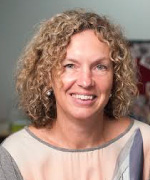 Sarah Davies has held a number of leadership roles in Australia’s charity sector, before taking the reins at the country’s peak organisation on philanthropy. Within a short time as CEO of Philanthropy Australia, Davies has driven support for emerging philanthropists, social entrepreneurs and pushed forward a new strategic agenda to shape policy development and innovation in this space. Davies has prioritised reviewing and reshaping “how we continue to feed and grow the philanthropic ecosystem.”
Sarah Davies has held a number of leadership roles in Australia’s charity sector, before taking the reins at the country’s peak organisation on philanthropy. Within a short time as CEO of Philanthropy Australia, Davies has driven support for emerging philanthropists, social entrepreneurs and pushed forward a new strategic agenda to shape policy development and innovation in this space. Davies has prioritised reviewing and reshaping “how we continue to feed and grow the philanthropic ecosystem.”
With a focus on collaborating across industry and sector, Davies sits on the board of Centre for Social Impact and continues to be the Director for Kids Under Cover.
Gemma Salteri
 Alongside her career as a business strategist and marketer, Gemma Salteri has taken on her fair share of charitable giving. Salteri not only directs CAGES Foundation to increase opportunities for Aboriginal and Torres Strait Islander children, she advises The Carlos and Roslyn Salteri Foundation on its charitable giving. With a strong interest in the democratisation of giving, Gemma was awarded Philanthropy Australia’s 2016 Emerging Philanthropist Award. She is also bringing innovative approaches of crowd-funding to Australia as a board member of The Funding Network.
Alongside her career as a business strategist and marketer, Gemma Salteri has taken on her fair share of charitable giving. Salteri not only directs CAGES Foundation to increase opportunities for Aboriginal and Torres Strait Islander children, she advises The Carlos and Roslyn Salteri Foundation on its charitable giving. With a strong interest in the democratisation of giving, Gemma was awarded Philanthropy Australia’s 2016 Emerging Philanthropist Award. She is also bringing innovative approaches of crowd-funding to Australia as a board member of The Funding Network.
Lisa Grinham
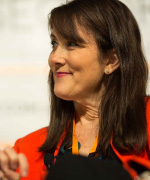 OK, we have a slight bias here, but we have to put a shout out to our leading lady – Lisa Grinham. Lisa Grinham has been unleashing the potential of corporate community investment in Australia for the past 10 years. Grinham has championed the need for the full integration of community investment into core business strategies, and to provide easy-to-use digital solutions to bring generosity at work to the community and charities most in need. With that goal in mind, Grinham has led research, product development and a team of specialists at Good2Give to bring the business case and integration of shared value to over 20 per cent of the ASX 100.
OK, we have a slight bias here, but we have to put a shout out to our leading lady – Lisa Grinham. Lisa Grinham has been unleashing the potential of corporate community investment in Australia for the past 10 years. Grinham has championed the need for the full integration of community investment into core business strategies, and to provide easy-to-use digital solutions to bring generosity at work to the community and charities most in need. With that goal in mind, Grinham has led research, product development and a team of specialists at Good2Give to bring the business case and integration of shared value to over 20 per cent of the ASX 100.
Through this work, Grinham has unlocked millions in employee and corporate donations for Australian charities, and is committed to directing $300 million in donations by 2020. You can read her blog on why she gives.
Professor Jo Barraket
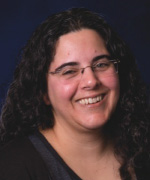 Professor Jo Barraket worked with Associate Professor Wendy Scaife as a lead on the Giving Australia research and in her role at the Centre for Social Impact at the Swinburne University of Technology, directs quantitative and qualitative studies on giving, inclusion and key social issues. She continues to be Australia’s leading academic expert on social enterprise in Australia and led the first national mapping study and census in the field. Professor Barraket has contributed over 40 publications on social innovation – a suite of analysis that has informed policy and industry uptake of social investment in Australia.
Professor Jo Barraket worked with Associate Professor Wendy Scaife as a lead on the Giving Australia research and in her role at the Centre for Social Impact at the Swinburne University of Technology, directs quantitative and qualitative studies on giving, inclusion and key social issues. She continues to be Australia’s leading academic expert on social enterprise in Australia and led the first national mapping study and census in the field. Professor Barraket has contributed over 40 publications on social innovation – a suite of analysis that has informed policy and industry uptake of social investment in Australia.
Seri Renkin
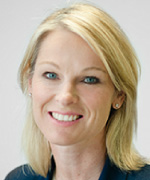 Seri Renkin is the head of a unique organisation in Australia that’s shaking up how we fund change around entrenched social issues. ten20 Focuses on catalytic philanthropic entity dedicated to collective impact – which is a complicated thing to understand if you’ve never heard of it, so here’s the outline of purpose direct from the ten20 website:
Seri Renkin is the head of a unique organisation in Australia that’s shaking up how we fund change around entrenched social issues. ten20 Focuses on catalytic philanthropic entity dedicated to collective impact – which is a complicated thing to understand if you’ve never heard of it, so here’s the outline of purpose direct from the ten20 website:
- We are facing complex, systemic issues
- Money alone won’t fix the problem
- There’s no ready formula for solving some of society’s biggest issues
- We need new thinking, new answers, and more efficient use of existing resources
- It’s time for a new model and a new approach, one that co-ordinates action, data and all the people and organisations who care, towards a common goal and shared agenda for change.
- We can achieve more collectively, than individually.
- We must keep changing to get results for all our children.
Renkin is leading by example – speaking to Generosity Magazine, she said “if we really want to make progress on complex social issues in our communities, we have no choice but to look at new ways of working with the resources we have.”
Lisa George
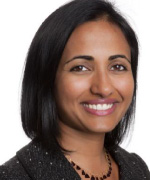 Lisa George is the Global Head of the Macquarie Group Foundation, which since its inception, has contributed nearly $A300 million to community organisations around the world. George is a graduate of Harvard University and Chair of the Harvard Club of Australia’s Nonprofit Fellowship Program. In 2016, the Macquarie Group Foundation and Macquarie staff contributed close to $A30 million to 1,500 organisations globally. Known as one of the leading corporate foundations in Australia, George brings a strategic lens to her work – funding innovation and charities with long-term vision and solutions.
Lisa George is the Global Head of the Macquarie Group Foundation, which since its inception, has contributed nearly $A300 million to community organisations around the world. George is a graduate of Harvard University and Chair of the Harvard Club of Australia’s Nonprofit Fellowship Program. In 2016, the Macquarie Group Foundation and Macquarie staff contributed close to $A30 million to 1,500 organisations globally. Known as one of the leading corporate foundations in Australia, George brings a strategic lens to her work – funding innovation and charities with long-term vision and solutions.
Maree Sidey
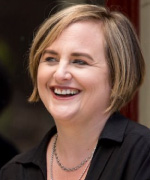 Passionate for social change, Maree Sidey is helping to redefine philanthropy in Australia. Sidey became CEO of the Australia’s largest community foundation in 2015. Within a year and a half, she’s committed to make philanthropy not only easy but accessible.
Passionate for social change, Maree Sidey is helping to redefine philanthropy in Australia. Sidey became CEO of the Australia’s largest community foundation in 2015. Within a year and a half, she’s committed to make philanthropy not only easy but accessible.
When talking at the Philanthropy Australia Conference in 2016, Maree said that it’s important to develop philanthropic models that “democratise and demystify philanthropy.” This is about offering “pocket philanthropy” that allow for relatively small contributions, through to collective giving models that build communities of change. Sidey told Generosity Magazine that “giving should be for everybody.” And we look forward to her cracking it!




